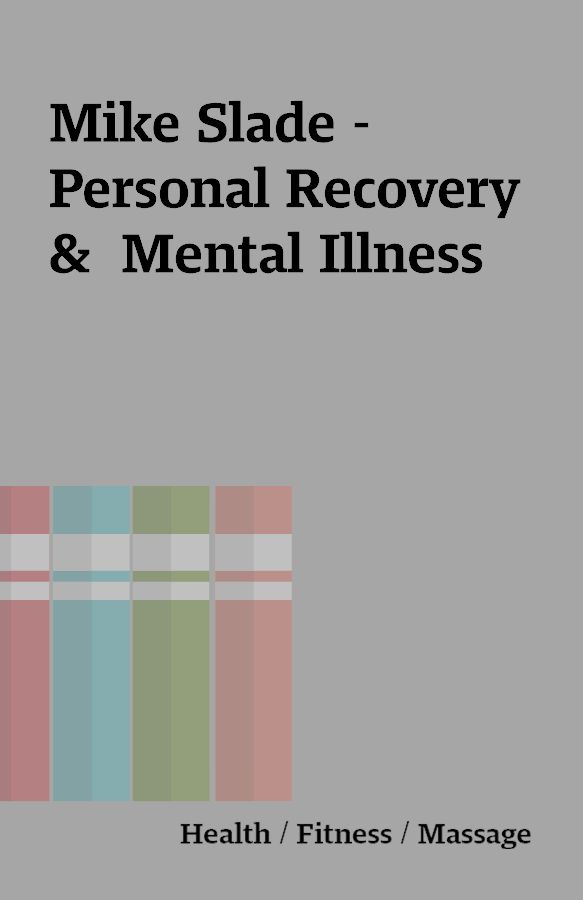Mike Slade – Personal Recovery & Mental Illness
Personal Recovery & Mental Illness – Cambridge 2009.pdf
[1 eBook – PDF]
Description
Personal Recovery and Mental IllnessA Guide for Mental Health ProfessionalsSeries: Values-Based MedicineMike SladeKing’s College LondonRRP: £35.00(ISBN-13: 9780521746588)Information on this title: www.cambridge.org/9780521746588© M. Slade 2009 First published 2009http://www.cambridge.org/catalogue/catalogue.asp?ISBN=9780521746588 RECOVERY is a concept which has emerged from the experiences of people with mental illness. It involves a shift away from traditional clinical preoccupations such as managing risk and avoiding relapse, towards new priorities of supporting the person in working towards their own goals and taking responsibility for their own life. This book sets an agenda for mental health services internationally, by converting these ideas of recovery into an action plan for professionals. The underlying principles are explored, and five reasons identified for why supporting recovery should be the primary goal. A new conceptual basis for mental health services is described – the Personal Recovery framework – which gives primacy to the person over the illness, and identifies the contribution of personal and social identity to recovery. These are brought to life through twenty-six case studies from around the world.• Identifies the meaning and importance of recovery, and describes a new Personal Recovery framework • Includes numerous case studies from international centres illustrating how recovery is achieved in practice • Answers the question ‘how can I work to support recovery?’ContentsPreface; Part I. Mental Illness and Recovery: 1. Overview of the book; 2. The nature of mental illness; 3. What is recovery?; Part II. The Primacy of Personal Recovery: 4. Epistemological rationale; 5. Ethical rationale; 6. Effectiveness rationale; 7. Empowerment rationale; 8. Policy rationale; Part III. Recovery-Focussed Mental Health Services: 9. The Personal Recovery framework; 10. Fostering relationships with a higher being; 11. Fostering close relationships; 12. Peer relationships; 13. Professional relationships; 14. Promoting well-being; 15. The foundations of a recovery-focussed mental health service; 16. Assessment; 17. Action planning; 18. Supporting the development of self-management skills; 19. The contribution of medication to recovery; 20. The contribution of risk-taking to recovery; 21. Recovery through crisis; 22. Recognising a recovery focus in mental health services; 23. Improving social inclusion; Part IV. Challenges: 24. Concerns held by clinicians; 25. Concerns held by consumers; 26. Organisational transformation; Web resources; References; Index.
You must be logged in to post a review.






Reviews
There are no reviews yet.